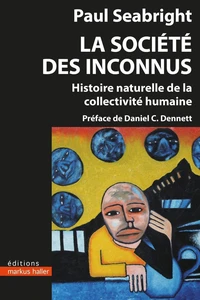A landmark book in the debate over free will that makes the case for compatibilism. In this landmark 1984 work on free will, Daniel Dennett makes a case for compatibilism. His aim, as he writes in the preface to this new edition, was a cleanup job, "saving everything that mattered about the everyday concept of free will, while jettisoning the impediments." In Elbow Room, Dennett argues that the varieties of free will worth wanting-those that underwrite moral and artistic responsibility-are not threatened by advances in science but distinguished, explained, and justified in detail.
Dennett tackles the question of free will in a highly original and witty manner, drawing on the theories and concepts of fields that range from physics and evolutionary biology to engineering, automata theory, and artificial intelligence. He shows how the classical formulations of the problem in philosophy depend on misuses of imagination, and he disentangles the philosophical problems of real interest from the "family of anxieties" in which they are often enmeshed-imaginary agents and bogeymen, including the Peremptory Puppeteer, the Nefarious Neurosurgeon, and the Cosmic Child Whose Dolls We Are.
Putting sociobiology in its rightful place, he concludes that we can have free will and science too. He explores reason, control and self-control, the meaning of "can" and "could have done otherwise, " responsibility and punishment, and why we would want free will in the first place. A fresh reading of Dennett's book shows how much it can still contribute to current discussions of free will. This edition includes as its afterword Dennett's 2012 Erasmus Prize essay.
A landmark book in the debate over free will that makes the case for compatibilism. In this landmark 1984 work on free will, Daniel Dennett makes a case for compatibilism. His aim, as he writes in the preface to this new edition, was a cleanup job, "saving everything that mattered about the everyday concept of free will, while jettisoning the impediments." In Elbow Room, Dennett argues that the varieties of free will worth wanting-those that underwrite moral and artistic responsibility-are not threatened by advances in science but distinguished, explained, and justified in detail.
Dennett tackles the question of free will in a highly original and witty manner, drawing on the theories and concepts of fields that range from physics and evolutionary biology to engineering, automata theory, and artificial intelligence. He shows how the classical formulations of the problem in philosophy depend on misuses of imagination, and he disentangles the philosophical problems of real interest from the "family of anxieties" in which they are often enmeshed-imaginary agents and bogeymen, including the Peremptory Puppeteer, the Nefarious Neurosurgeon, and the Cosmic Child Whose Dolls We Are.
Putting sociobiology in its rightful place, he concludes that we can have free will and science too. He explores reason, control and self-control, the meaning of "can" and "could have done otherwise, " responsibility and punishment, and why we would want free will in the first place. A fresh reading of Dennett's book shows how much it can still contribute to current discussions of free will. This edition includes as its afterword Dennett's 2012 Erasmus Prize essay.

 , qui est-ce ?
, qui est-ce ?